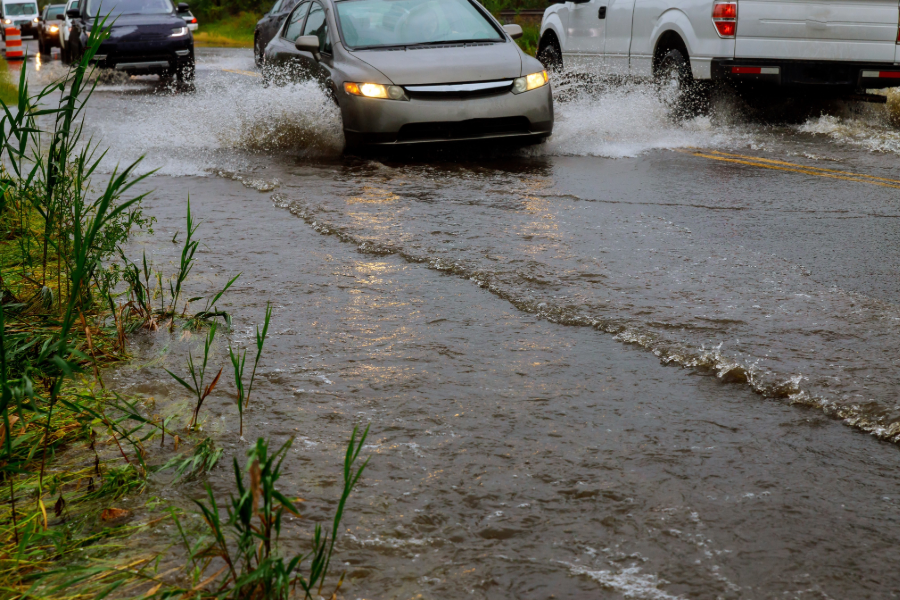
Predicting Climate-Induced Transportation Risks: CEE-Morgan State Collaboration
 CEE is known internationally for its cutting-edge research and innovative proposals to address some of the world’s most pressing engineering problems. Professor Sean Qian and his doctoral students are collaborating with Morgan State University (MSU) researchers to predict the impacts of climate change on transportation systems. The work not only creates an early-warning notification system that detects impending infrastructure problems but also allows Qian’s students to learn from MSU faculty and researchers who are world-class leaders in hazard modeling.
CEE is known internationally for its cutting-edge research and innovative proposals to address some of the world’s most pressing engineering problems. Professor Sean Qian and his doctoral students are collaborating with Morgan State University (MSU) researchers to predict the impacts of climate change on transportation systems. The work not only creates an early-warning notification system that detects impending infrastructure problems but also allows Qian’s students to learn from MSU faculty and researchers who are world-class leaders in hazard modeling.
The research project focuses on climate change’s impact on transportation infrastructure and mobility services. Warmer weather leads to rainfall events that cause landslides, flood roads, and block highways. Land subsidence results in a rise in the relative sea level and more frequent flooding on roadways and bridges. When these events happen without warning, people can be seriously injured or cut off by closed roadways. Qian and his students found that these events have an even more profound impact on disadvantaged communities where proportionally more people are reliant upon public transportation.
The partnership with MSU will help to address these problems by identifying potential issues, like landslides and flash flooding before they happen. Qian states that the research will lead to developing a data-driven comprehensive slope instability forecast system for roads and highways during heavy rainfall events. The predictions will be based on multiple data sources, including precipitation, soil condition, slope configurations, wind, visibility, pavement condition, and ground motion.
If a significant storm was headed into Maryland and the conditions were favorable for emergencies like a landslide, “the prediction system would alert the Maryland Department of Transportation State Highway Administration (MDT SHA) SHA with high-risk warnings ‘on the fly’,” says Qian. These notifications could be as soon as three hours ahead of the event and as long as months. The predictions of slope instability will be updated on an hourly basis and presented in real-time via a GIS-based software tool.
"...the prediction system would alert the Maryland Department of Transportation State Highway Administration (MDT SHA) SHA with high-risk warnings ‘on the fly’."
The completed research will lead to daily GIS analysis and notifications that will assist MDOT SHA with prioritizing slope inspections and maintenance on its roadways.
This project is the third time Qian and others from CEE have collaborated with MSU. Past research collaborations included studying multi-modal equitable transportation systems and climate change adaptation within the Chesapeake Bay area.
Qian regularly travels to MSU to work alongside fellow researchers, and his doctoral students interact with their MSU peers via Zoom. “Drs. Liu, Sheng, Owolabi, and I have jointly trained each other’s doctoral students. I have given lectures and seminars a few times at Morgan State, encouraging more undergraduate and master’s students to attend CMU,” Qian adds.
Qian is excited to continue including his students in inter-university research opportunities that expand their knowledge and connections within the engineering workspace. “In addition to the landslide prediction and warning system, we are developing statewide models for MDOT SHA that will estimate the impact of complete street projects on pedestrians and cyclists,” he adds.